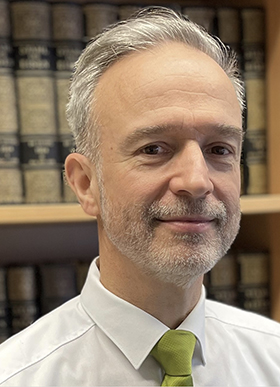Hillert Materials Modeling Colloquium series VIII: Mesoscale Simulation of Material Properties and Processing under Consideration of Microstructure, Chemistry and Damage using DAMASK

Dick Raabe is professor at RWTH Aachen and former director of Max Planck Society. In this lecture he will present, amongst other things, a multi-physics, multi-mechanism, chemo-mechanical crystal plasticity and recrystallization modeling package.
Time: Tue 2022-11-22 15.00
Video link: https://kth-se.zoom.us/j/63454127916
Participating: Professor Dierk Raabe
The lecture presents a multi-physics, multi-mechanism, chemo-mechanical crystal plasticity and recrystallization modeling package together with several applications to engineering alloys subjected to thermomechanical and redox scenarios. The solution of such complex continuum mechanical boundary value problems requires constitutive laws that are based on material physics (considering effects such as microstructure, texture, chemistry, recrystallization, and damage) and that connect deformation, constitution, stress and damage at each material point. This task has been implemented in the free software package DAMASK on the basis of the crystal plasticity method using a variety of constitutive laws and homogenization approaches.
It is shown that a purely mechanics-based approach is no longer sufficient to study current advanced metallic materials. In these materials the elasto-plastic deformation via shear carriers such as dislocations, TRIP and TWIP effects is strongly coupled to recrystallization, phase transformation, dissipative sample heating, and damage evolution. Therefore, our theory has recently been extended to treat such chemo-mechanical multi-physics and multi-field phenomena, where we use also phase-field theories with both, conserved and non-conserved variables.
Hillert Materials Modeling Colloquium Series is arranged by Hillert Modeling Laboratory
Department of Materials Science and Engineering
KTH Royal Institute of Technology
Spokesperson:

